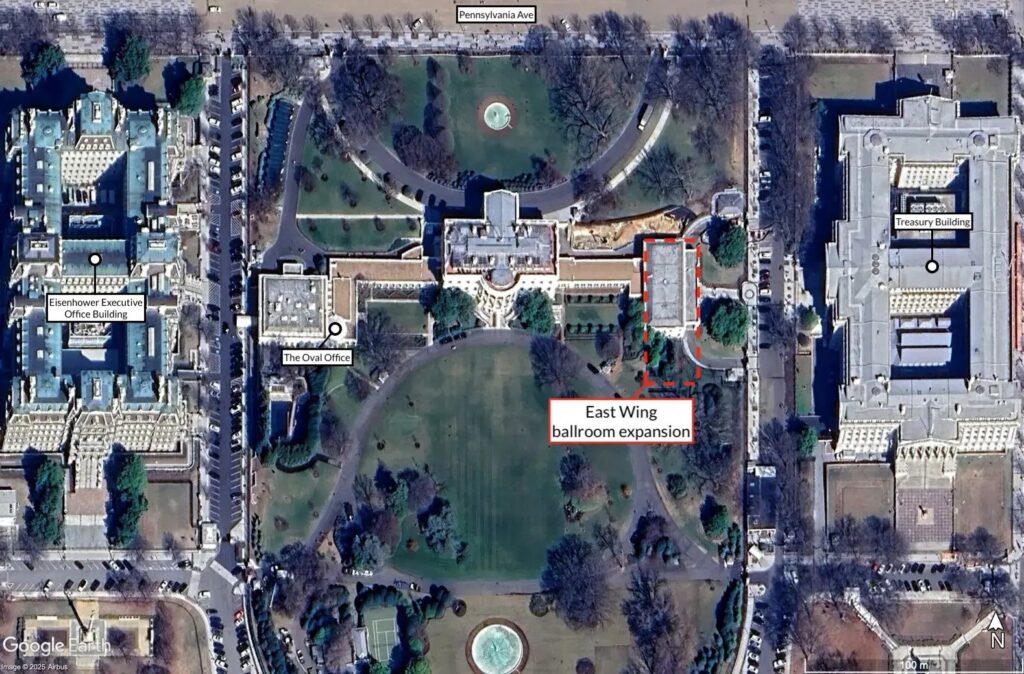
RINO Republicans: Irrelevant and Out of Touch with the GOP’s Future
In recent years, the term “RINO” (Republican in Name Only) has taken on new meaning, particularly as a label for individuals within the GOP who have steadfastly opposed the populist movement led by former President Donald Trump. As the 2024 election cycle approaches, a notable group of these “Never Trump” Republicans—figures like Dick and Liz Cheney, George Bush, Mike Pence, John Bolton, Mitt Romney, Adam Kinzinger, Lisa Murkowski, and the disbanded yet outspoken Lincoln Project—have taken their defection to new heights, publicly declaring their intent to support Kamala Harris, the Democratic frontrunner, for president. By doing so, they have effectively cemented their irrelevance within the modern GOP, ensuring that their influence will continue to dwindle in a party that has transformed far beyond the neoconservative days of the Bush administration.
The Irreversible Break
The decision to endorse Harris over Trump is nothing short of an existential crisis for these figures. While many of them have long been estranged from the Trump wing of the party, this outright endorsement of the opposition signals their final break from the GOP’s base. Figures such as Dick and Liz Cheney, who once represented the hawkish, interventionist wing of the Republican Party, are now seen as relics of a bygone era. Their support for Harris, a staunch progressive, reveals just how disconnected they’ve become from the conservative grassroots.
Liz Cheney’s anti-Trump crusade reached its zenith with her prominent role on the January 6th Committee, where she sought to portray Trump as a danger to democracy. While this earned her accolades from the left, it led to her resounding defeat in Wyoming’s Republican primary, where her loyalty to the party’s base was called into question. Her father’s legacy as Vice President under George W. Bush may have carried weight during the War on Terror, but in today’s GOP, a party increasingly focused on America First policies, the Cheney name is synonymous with the establishment—a faction that has lost its grip on power.
George Bush: A Distant Memory
The Bush dynasty, once a dominant force in Republican politics, now finds itself in the political wilderness. George W. Bush’s silence during the Trump presidency spoke volumes, but his recent endorsement of Kamala Harris underscores how far he has drifted from the conservative movement that once championed his leadership. Many conservative voters see the Bush years as a period of misguided wars and unchecked spending, and the former president’s support for a Democratic candidate further alienates him from a party that has moved in a dramatically different direction.
Mike Pence and John Bolton: From Allies to Pariahs
Mike Pence, once Trump’s loyal vice president, finds himself in a political no man’s land. His refusal to challenge the 2020 election results earned him the ire of many Trump supporters, and his subsequent political moves, including his Harris endorsement, have isolated him even further. Pence’s traditional conservative stance on issues like abortion may resonate with some in the GOP, but his unwillingness to embrace the populist tide means his future within the party is bleak.
John Bolton, Trump’s former national security advisor, has long been a polarizing figure. His neoconservative worldview, shaped by a belief in American interventionism abroad, is a stark contrast to the America First approach that now defines the GOP. Bolton’s endorsement of Harris is unsurprising, given his public spats with Trump, but it only serves to highlight how out of touch he is with a Republican base that no longer prioritizes endless wars and nation-building.
Mitt Romney, Adam Kinzinger, and Lisa Murkowski: The Party’s Outcasts
Mitt Romney, the senator from Utah and 2012 Republican presidential nominee, has spent much of the Trump era positioning himself as the GOP’s moral conscience. His votes to impeach Trump and his consistent criticism of the former president have made him a pariah within the party. Romney’s decision to back Harris all but guarantees that he will have no future influence in shaping the GOP’s policy or direction.
Adam Kinzinger, another vocal critic of Trump, has followed a similar trajectory. Once a rising star in the GOP, Kinzinger’s tenure on the January 6th Committee and his constant bashing of Trump’s influence on the party led to his political demise. His exit from Congress was more of a resignation than a defeat, but his endorsement of Harris signals that he, too, has no intention of aligning with the future of the Republican Party.
Lisa Murkowski, the senator from Alaska, has long walked a fine line between maintaining her seat and placating a Republican base that has increasingly viewed her as too moderate. Her vote to convict Trump in his second impeachment trial alienated her from the GOP electorate, and her support for Harris solidifies her position as an outsider within the party.
The Lincoln Project: A Failed Experiment
Perhaps the most glaring example of political irrelevance is The Lincoln Project, the group of disaffected Republicans that formed in opposition to Trump. While initially heralded by the media as a principled stand against the populist takeover of the GOP, the organization quickly descended into scandal and disarray. Its members—George Conway, Steve Schmidt, John Weaver, Rick Wilson, Jennifer Horn, Ron Steslow, Reed Galen, and Mike Madrid—have not only failed to sway Republican voters but have also been engulfed by internal turmoil, sexual harassment scandals, and allegations of financial mismanagement.
The Lincoln Project’s endorsement of Harris is more of a desperate attempt to stay relevant than a meaningful political statement. Their influence has waned to the point that they are now more popular with MSNBC viewers than with actual Republican voters. Their vocal support for a Democratic candidate only serves to remind the GOP base that they no longer belong within the party’s tent.
The GOP’s Future: Unwavering Loyalty to the Base
The transformation of the Republican Party over the past decade has been nothing short of revolutionary. What was once a party led by establishment figures like the Bushes, Romneys, and Cheneys has now become a movement driven by a populist, nationalist base. The issues that animate the GOP today—securing the southern border, protecting American jobs, limiting government overreach, and standing up to the radical left—are completely at odds with the worldview of the RINO Republicans who are now backing Kamala Harris.
By choosing to support Harris, these figures have all but guaranteed their permanent exclusion from any future Republican administration. Their influence has been reduced to the occasional appearance on cable news, where they are paraded as “reasonable” Republicans willing to buck their party’s leadership. But within the actual GOP, their voices carry no weight. The Republican Party is no longer a party of compromise with the left—it is a party of conviction, driven by a desire to restore American greatness and reject the globalist, interventionist policies of the past.
A New Era for the GOP
As the 2024 election looms, the irrelevance of the Never Trump Republicans becomes increasingly apparent. Their endorsement of Kamala Harris is not a principled stand but a final act of desperation from a faction that has lost its influence and power. The future of the Republican Party belongs to those who are willing to fight for the interests of the American people, not those who seek the approval of the media or the Washington elite. In the end, the RINO Republicans have chosen their path, and it is one that leads far away from the heart of the GOP.

Featured
Radical Doc Ditches Her Scalpel After Paxton’s Lawsuit Exposes Transgender Hustle

Dallas, TX – A Dallas pediatrician, once hailed as a “trusted resource” for troubled teens, has thrown in the towel on her medical career. Dr. May Lau, the UT Southwestern associate professor whose office walls likely echoed with the sobs of confused adolescents, has voluntarily surrendered her Texas medical license. This comes hot on the heels of a blistering lawsuit from Attorney General Ken Paxton, who accused her of peddling banned gender-transition drugs to at least 21 minors, all while allegedly doctoring records to dodge the law.
Let’s rewind the tape, because this isn’t just another footnote in the endless culture war skirmishes. It’s a stark reminder that in the Lone Star State, at least, the adults in the room are finally drawing a line in the sand against the medical-industrial complex’s latest fad: turning kids into lab rats for irreversible experiments.
Senate Bill 14, signed into law by Gov. Greg Abbott in 2023 and upheld by the Texas Supreme Court, couldn’t be clearer: No puberty blockers, no cross-sex hormones, no mutilating surgeries for anyone under 18 chasing a “gender identity” that clashes with their biology. It’s common-sense guardianship, rooted in the unshakeable truth that children—bless their impressionable hearts—aren’t equipped to consent to life-altering alterations pushed by activists masquerading as healers.
Paxton’s office dropped the hammer on Lau back in October 2024, filing suit in Collin County and laying out a dossier of alleged deceit that would make a Watergate operative blush. We’re talking falsified prescriptions, bogus billing codes, and medical records twisted to make testosterone shots look like treatment for anything but affirming a minor’s delusion about their sex... alleges Paxton. Paxton says over 20 kids—biological females, no less—got dosed with this controlled substance, all post-ban, in direct defiance of Texas Health & Safety Code § 161.702(3). And for good measure, Paxton tacked on claims under the Deceptive Trade Practices Act, painting Lau as a scofflaw who didn’t just break the rules; she gamed the system to keep the hormone pipeline flowing.
Lau’s professional bio paints her as the epitome of the caring clinician: A pediatric specialist at Children’s Medical Center Dallas and Plano, with a self-proclaimed mission to “guide my patients to make the best and healthiest decisions for them“—alongside their parents, naturally. Her Healthgrades profile boasts expertise in adolescent health, reproductive woes, and menstrual mysteries, and she’s even open to telehealth chats for the Zoom-generation youth. But peel back the polish, and the shine fades fast: A measly 2.7-star rating from patients, whispers of controversy, and now this. Affiliated with powerhouse institutions like UT Southwestern, Lau wielded privileges that let her roam hospital halls unchecked—until Paxton turned the spotlight.
The fallout? Swift and surgical. As the case barreled forward, Paxton inked a Rule 11 agreement with Lau, slamming the brakes on her patient-facing practice mid-litigation. No more stethoscope sessions, no more “guidance” sessions that could scar a lifetime. And now, the coup de grâce: Her license is toast, voluntarily surrendered to the Texas Medical Board, ensuring she can’t play white-coated wizard with Texas tykes ever again. The civil suit chugs on, with Paxton gunning for injunctions and fines up to $10,000 per violation—because accountability isn’t optional when you’ve potentially wrecked young bodies and psyches for ideology’s sake.
Attorney General Paxton didn’t mince words in his victory lap, and why should he? “Doctors who permanently hurt kids by giving them experimental drugs are nothing more than disturbed left-wing activists who have no business being in the medical field,” he thundered in a statement that lands like a constitutional thunderclap. “May Lau has done untold damage to children, both physically and psychologically, and the surrendering of her Texas medical license is a major victory for our state. My case against her for breaking the law will continue, and we will not relent in holding anyone who tries to ‘transition’ kids accountable.“
Spot on, Ken. This isn’t about cruelty; it’s about custody of the innocent. While the ACLU’s Harper Seldin wails that such enforcement is a “predictable and terrifying result,” trotting out the tired trope of politicians meddling between “families and their doctors,” let’s call the bluff. Families? Try ideologues greenlighting puberty blockers for preteens. Best medical judgment? More like Big Pharma’s profit playbook, subsidized by blue-state bureaucrats and cheered by coastal elites who wouldn’t dream of letting their own kids near the knife.
Lau’s capitulation isn’t isolated—it’s the latest domino in Paxton’s crusade. Just this year, he’s reined in three other Lone Star docs for similar sins, while states like Arkansas and Florida see their bans clobbered in court only to bounce back on appeal. Twenty-six states now stand athwart this madness, a federalist firewall against the transgender tide.
For constitutional conservatives, this saga sings the praises of federalism at its finest: States as laboratories of liberty, shielding the vulnerable from federal overreach and cultural contagions alike. Dr. Lau’s license loss? It’s not vengeance; it’s vindication. A win for wary parents, bewildered youth, and the unyielding biology that no amount of activism can rewrite. As Paxton presses on, one can’t help but wonder: Who’s next in the crosshairs? Because in Texas, the housecleaning has only just begun.
Featured
National Trust Tries to Bully the President

The National Trust for Historic Preservation (NTHP), a private 501(c)(3) nonprofit, sent a sharply worded “demand” letter to the National Park Service (NPS) on October 21, aiming to halt President Trump’s bold plan to demolish the White House’s East Wing for a grand 90,000-square-foot ballroom addition.
The move, meant to modernize the People’s House for state dinners and global summits, has preservationists clutching their blueprints in horror. But this isn’t about saving history—it’s about a private club flexing muscle it doesn’t have, trying to strong-arm an Executive Branch that answers only to the Constitution and the American people.

Let’s get one thing straight: The NPS, which oversees the White House as a national historic site, isn’t a free-floating bureaucracy taking orders from self-appointed guardians of granite. It’s a cog in the Department of the Interior, a cabinet-level agency nestled firmly within the Executive Branch. Article II of the Constitution vests the President with singular authority to administer the government, meaning the NPS takes its marching orders from 1600 Pennsylvania Avenue, not a donor-funded NGO with a fancy letterhead. The President doesn’t need a permission slip from anyone—least of all a group whose congressional charter from 1949 (Title 54 U.S.C.) grants them zero enforcement power, only a soapbox to “facilitate public participation” in preservation debates.
The White House, battered by time and tight quarters, needs this upgrade. The East Wing, a 1940s wartime add-on, wasn’t built for 21st-century diplomacy. Trump’s team, riding a fresh mandate from 74 million voters, broke ground on October 20 to clear the way for a ballroom that can host world leaders without elbowing ambassadors into the Rose Garden. It’s a practical fix, not a wrecking ball to history. Yet the NTHP, led by President and CEO Carol Quillen, fired off their letter to the NPS, the National Capital Planning Commission (NCPC), and the Commission of Fine Arts, demanding a “pause” until the project undergoes “legally required public review processes.” Their fear? The new wing might “overwhelm” the White House’s aesthetic balance, as if a President’s vision for his own residence needs a focus group’s approval.

This is where the NTHP’s overreach gets laughable. Their charter, signed by Harry Truman, makes them a nonprofit cheerleader for preservation, not a coequal branch of government. They’re a membership organization—think country club for history buffs, bankrolled by corporate sponsors and tax-deductible donations. They partner with the NPS on grants and advocacy, sure, but that’s like a booster club claiming veto power over the coach’s playbook.
The NPS, managing $62 million in Historic Preservation Fund grants for FY25, answers to Congress’s purse and the President’s pen, not Quillen’s pleas. The NCPC and CFA? They’re advisory bodies, not czars. Their input on D.C. federal projects, born from post-WWII urban planning laws, carries weight only as far as the President allows. For the White House itself? That’s executive turf, exempt from the zoning red tape that snarls lesser projects.
Quillen’s letter drips with sanctimonious concern, urging “transparency and broad input from the public.” Translation: Let us, the enlightened few, gatekeep the nation’s heritage. This isn’t advocacy—it’s audacity. The NTHP’s claim to speak for “the American people’s investment” in the White House ignores the 74 million who voted for action, not paralysis. Their cozy ties to the NPS—shared programs, joint field offices—make this less a principled stand than a power play by insiders who think they own the narrative on “historic.” The American Institute of Architects piled on in August, fretting about “scale and balance,” but their opinions, like the NTHP’s, are just that—opinions, not edicts.
Conservatives know this game. It’s the same soft tyranny we’ve seen in Texas, where unelected boards and NGOs try to smother progress with red tape. From Austin’s zoning wars to the Alamo’s restoration fights, we’ve learned that preservation without purpose is just stagnation. The White House isn’t a museum diorama; it’s a living seat of power, meant to project American strength. Trump’s ballroom isn’t defacing history—it’s enabling it to serve the future.
White House officials, unmoved by the posturing, signaled yesterday that demolition continues. “The scope and size of the project has always been subject to vary as the process developed,” a spokesperson said, noting plans would hit the NCPC “at the appropriate time.” In other words: We’re building, and your memo’s been filed under ‘irrelevant.’ (my words) That’s the Executive Branch at work—accountable to the voters, not the vetoes of a nonprofit elite.
This dust-up exposes a deeper rot: the creeping assumption that private groups can check the President’s constitutional power. The NTHP’s letter isn’t just a misstep; it’s a microcosm of the swamp’s obsession with control, where every decision must pass through layers of unelected gatekeepers. Article II doesn’t bend to such nonsense. The President’s authority over his own residence, and the agencies that serve it, is as clear as the Constitution’s parchment.
In Texas, we’ve fought these battles before—against bureaucrats who’d rather embalm our past than let it breathe. The White House deserves the same fierce pragmatism. The NTHP’s demands are confetti in a constitutional storm—pretty, fleeting, and powerless against the will of a President elected to act. Let the jackhammers roar. America’s house is getting a long-overdue upgrade, and no amount of nonprofit noise can stop it.
Featured
30 Children Saved in Texas Anti-Trafficking Operation

San Antonio, TX – More than 30 missing children were located and recovered during Operation Lightning Bug, a focused law enforcement initiative that stretched from July 28 through August 15. The operation, centered in San Antonio, unveiled not only the scale of child exploitation in the state but also the increasingly urgent role Texas agencies are being forced to play in combating trafficking amid a national border crisis.
The U.S. Marshals Service (USMS), working in concert with the San Antonio Police Department (SAPD) and the Lone Star Fugitive Task Force, spearheaded the mission. In an official release, USMS confirmed that “over 30 missing juveniles” were located, six confirmed trafficking survivors were removed from exploitation, five trafficking investigations were launched, three individuals were arrested for harboring runaways, and nine felony warrants were executed. Additionally, “over 120 missing juveniles [were] encouraged to return home, resulting in cleared entries from state and national databases.”
“The safety of our children is the safety of our communities, and justice demands that we protect those who cannot protect themselves,” said U.S. Marshal Susan Pamerleau for the Western District of Texas. “Through Operation Lightning Bug, we reaffirm our promise to safeguard the most vulnerable and strengthen the safety of our communities.”
SAPD Chief William McManus echoed the urgency behind the operation, stating, “Every suspect arrested, juvenile returned home, and survivor taken out of harm’s way matters. This operation demonstrates what can be achieved when law enforcement agencies unite to protect children.”
A Deliberate Target on Traffickers
Operation Lightning Bug was highly strategic. Teams reviewed every missing juvenile listed in both the Texas Crime Information Center and the National Crime Information Center databases, identifying cases where minors were deemed “at high risk of exploitation by traffickers and predators.” The operation included deputies from USMS offices in San Antonio, Del Rio, Midland, and Pecos, along with specialized SAPD units, including Missing Persons, Special Victims, covert teams, and Street Crimes personnel. Intelligence gathering allowed law enforcement to prioritize the most vulnerable cases and craft operational plans that led to direct recoveries and arrests.
SAPD’s Special Victims Unit interviewed each recovered child to determine whether they had been victimized. Trafficking survivors were immediately connected with Texas Health and Human Services and partner organizations to ensure long-term safety, mental health support, and reintegration assistance.
According to data from the International Center for Missing and Exploited Children, more than 330,000 minors were reported missing in the United States in 2024. While many are found quickly, those who lack stable homes or strong support systems are increasingly being targeted by trafficking rings.
Trafficking Thrives on Instability — and Policy Failure
Kirsta Leeburg Melton, founder and CEO of the Institute to Combat Trafficking, explained to Fox News that “trafficking is the exploitation of men, women and children for forced sex or forced labor by a third party for their profit or gain. That’s been around forever. What hasn’t really been around is people’s understanding of that crime and their knowledge that it’s happening everywhere.”
Melton further noted that traffickers prey on minors with “unstable home lives,” including those suffering from a lack of food, housing, family support, or emotional security. Technology serves as a primary tool for both predators and buyers, giving traffickers a near-invisible reach into vulnerable groups.
The unprecedented influx of undocumented minors during the Biden administration placed child welfare and trafficking oversight systems under intense strain—a crisis Texas law enforcement is still working to contain. By contrast, under President Trump’s term, stricter border enforcement and cartel disruption efforts made it significantly harder for trafficking networks to exploit cross-border routes at scale.
Texas Law Enforcement Takes the Lead
While Washington debates border security and trafficking enforcement in committee rooms, Texas law enforcement agencies continue to operate on the front lines. Operation Lightning Bug not only demonstrated the capability of state and federal joint task forces but also reinforced the necessity of cooperation among local agencies.
The Lone Star Fugitive Task Force, involved in the operation, consists of personnel from SAPD, the Bexar County Sheriff’s Office, Texas DPS, the Texas Attorney General’s Office, Naval Criminal Investigative Service (NCIS), New Braunfels Police Department, Texas Board of Criminal Justice OIG, Bexar County District Attorney’s Office, U.S. Immigration and Customs Enforcement (ICE), and the U.S. Marshals Service.
Under authority granted by the Justice for Victims of Trafficking Act of 2015, the U.S. Marshals Service now has explicit power to intervene in missing child cases regardless of whether a sex offender or fugitive is involved. This expansion allowed USMS to establish the Missing Child Unit, which now collaborates rapidly with nationwide law enforcement partners.
Operation Lightning Bug showed what can happen when that authority is fully exercised. It demonstrated what many Texans already know: when state and local agencies are given the backing, funding, and legal authority to act, children are saved, predators are taken down, and trafficking networks are disrupted—sometimes permanently.
A Crisis That Isn’t Slowing Down
In August, 11 children were reported missing in North Dakota—a state with a population of fewer than one million. Earlier, in June, authorities recovered more than two dozen children in a Florida operation described as a “first-of-its-kind missing child rescue operation.” These numbers indicate a nationwide escalation rather than isolated events.
As Texas continues to serve as a primary trafficking corridor due to its geographic proximity to the border and multiple interstate routes, state officials are increasingly forced to respond where federal leadership has not.
Child trafficking is often framed as a distant, foreign evil—but Operation Lightning Bug makes it clear: the victims live here. They disappear from neighborhoods, schools, shelters, foster systems, and broken homes. They are not statistics; they are Texas children, lost to predators who thrive in moments of policy weakness and exploit institutional gaps.
Texas Fights — Even as the Battle Grows Harder
There is no declared victory here. But there is proof of impact. Thirty children were found. Six survivors of trafficking were brought out of exploitation and into safety. Five new investigations are underway, likely mapping broader criminal networks. Over 120 missing children—some voluntarily gone, some running from abuse—were convinced to return home. Felony suspects are now in custody.
More importantly, the operation forced public attention on a crisis that prefers to operate in the shadows.
Every rescued child represents a life pulled off a path toward trauma, abuse, or death. Every warrant served sends a message that Texas still has teeth in its justice system. And every coordinated effort reminds traffickers that the state is watching.
Operation Lightning Bug is not the end—but it is a bright flash in the dark, signaling that Texas law enforcement is willing to strike, even when others won’t.
You must be logged in to post a comment Login